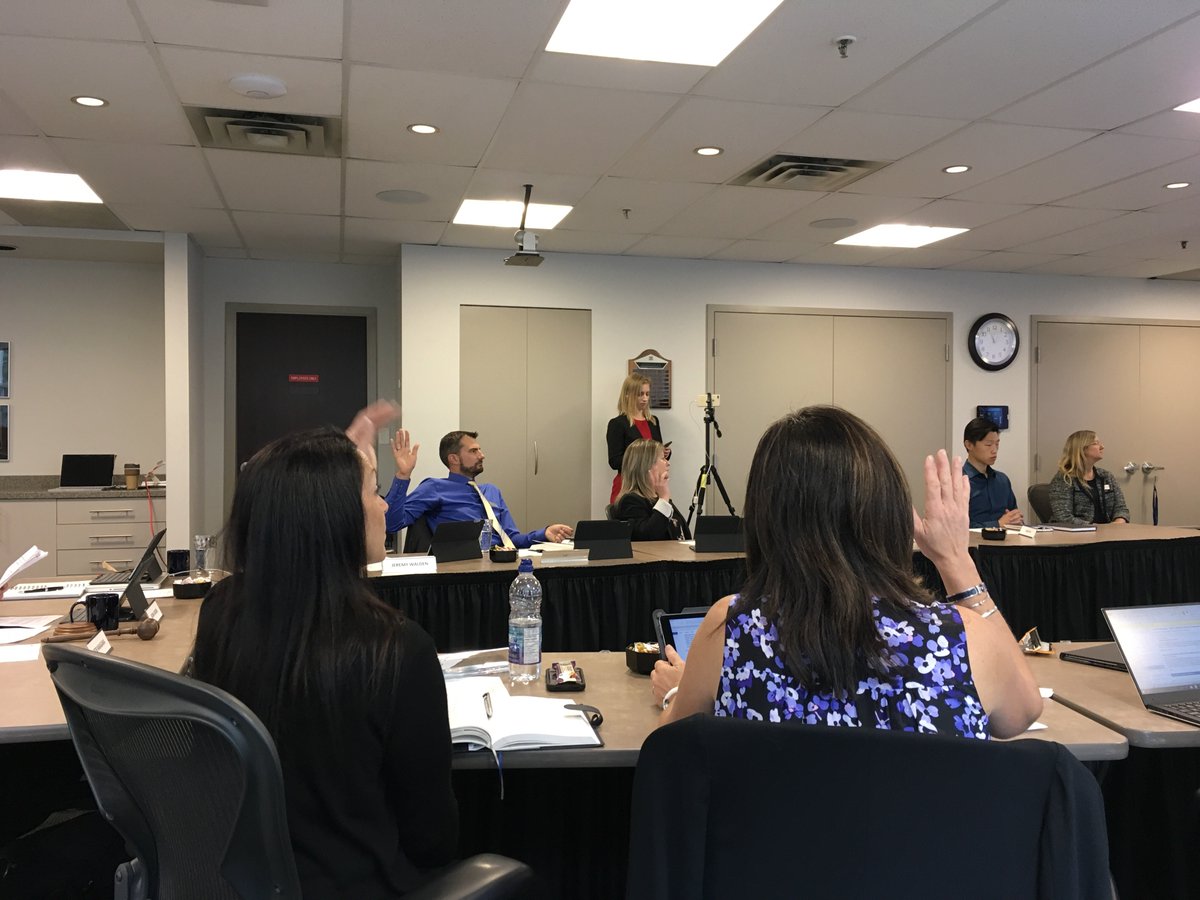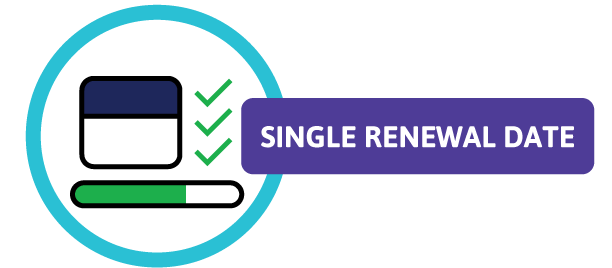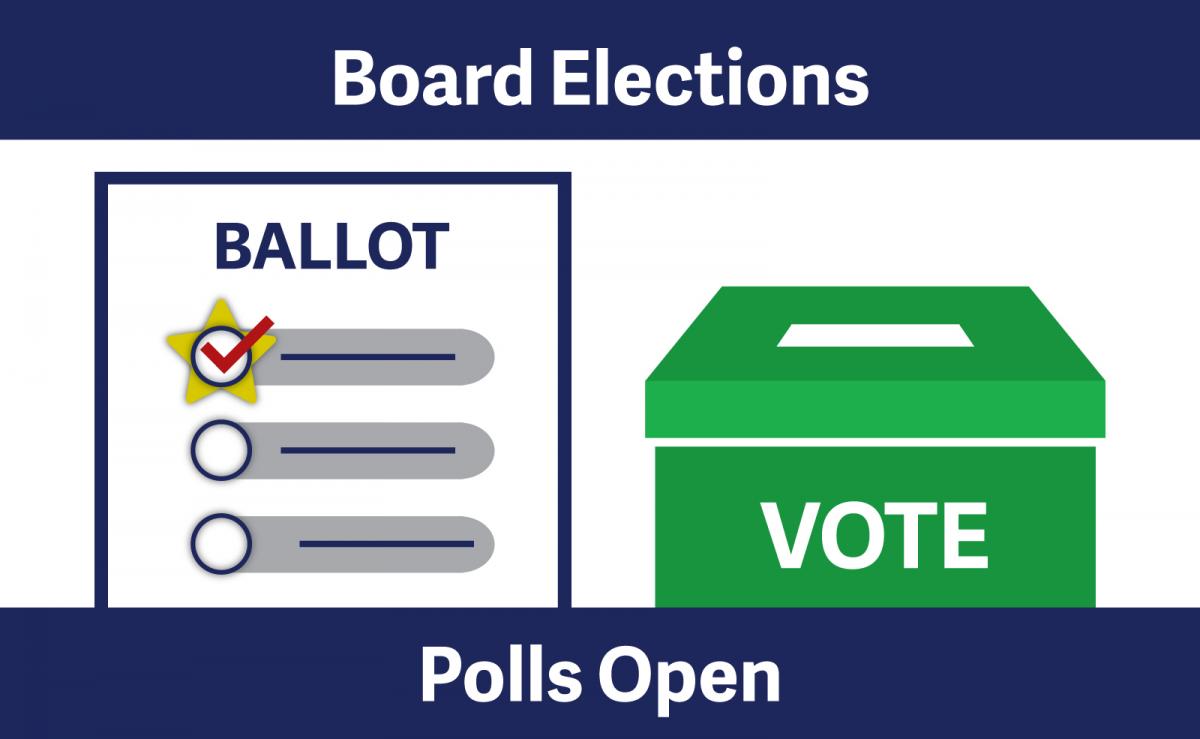Board Highlights - September 14, 2018
|
|
Highlights from this meeting include new requirements for electronic record keeping; BC's approach to cannabis legalization and regulation; updates on our commitment to cultural safety and humility; and a new Patient Relations Program Standard.

You can re-watch all the Board meeting presentations through the College’s Periscope Channel.
ELECTRONIC RECORD KEEPING BYLAWS
The College Board approved amendments to the Pharmacy Operations and Drug Scheduling Act Bylaws and Health Professions Act Bylaws relating to electronic record keeping requirements for registrants. The Board also approved rescinding Professional Practice Policy – 12: Prescription Hard Copy Filing System and Professional Practice Policy – 20: Prescription Refills, and consequential amendments to Professional Practice Policy-31: Emergency Prescription Refills and Professional Practice Policy-58: Medication Management (Adapting a Prescription), effective on the day that the amended Bylaws come into force.
Bylaws for Filing |
The amendments involve removing existing restrictions on electronic record keeping and adding standards for electronic record keeping, such as minimum technology requirements.
The College has received a number of requests from registrants to formally allow electronic record keeping. In practice, many pharmacies are already keeping electronic records and also maintaining hard copy files to comply with our requirements. These bylaw amendments address these requests, as well as the technology changes impacting pharmacies. They aim to better ensure that electronic patient information is accessed and maintained securely.
Under the new records management framework, pharmacies will be permitted to continue keeping only hard copy records, only electronic records or a combination of both.
However, if a pharmacy keeps any form of electronic record that contains personal health information, it must have a system that complies with minimum technology requirements. A registrant who creates and stores electronic records must also do so using a system that complies with minimum technology requirements. Pharmacies will have up to 6 months from the day that the amended bylaws come into force to transition to a compliant system.
The College would like to thank everyone who provided feedback on the new records management framework through the public posting period.
The proposed bylaws will be submitted to the Minister of Health for a 60-day filing period. Pending approval from the Minister, the amended bylaws are expected to come into effect in mid-November 2018 and the transition period will end in mid-May 2019
BRITISH COLUMBIA’S APPROACH TO CANNABIS LEGALIZATION AND REGULATION
Mary Shaw, Executive Director of the Cannabis Legalization and Regulation Secretariat, presented to the Board on the Cannabis Control and Licensing Act and the Cannabis Distribution Act, as well as amendments to the Motor Vehicle Act.
These statutes were enacted by the BC Legislature in anticipation of the federal legalization of non-medical cannabis on October 17, 2018. They establish a provincial regulatory framework that reflects the Province’s priorities of:
- Protecting children and youth;
- Promoting health and safety;
- Keeping the criminal element out of cannabis;
- Keeping B.C. roads safe; and
- Supporting economic development
Three pieces of legislation for cannabis in BC; Cannabis Control and Licensing Act, Cannabis Distribution Act, and amendments to Motor Vehicle Act. #CPBCBoard pic.twitter.com/qhkcGUSadD
— BC Pharmacists (@BCPharmacists) September 14, 2018
BC’s Cannabis Regime regulates cannabis production and producers and carves out a space for legal regulated non-medical cannabis, but many activities related to cannabis will continue to be criminal.
The Federal government will continue to oversee a separate medical cannabis system under which authorized medical users can buy or grow cannabis or have it grown for them by a designated producer. Medical users will have to comply with BC rules on cannabis possession, public use, and cultivation, with some exceptions as required by the Charter or human rights legislation.
transformative leadership to achieve first nations health & wellness in b.c.
Joe Gallagher, Chief Executive Officer for the First Nations Health Authority presented to the Board on Transformative Leadership to achieve First Nations Health & Wellness in BC.
“You have to transform relationships before you can transform services or transform anything” - Gwen Phillips, First Nations Health Council - Interior Region. @FNHC @fnha pic.twitter.com/tdi8T8ORUz
— BC Pharmacists (@BCPharmacists) September 14, 2018
Discrimination against aboriginal peoples is a pervasive problem within BC’s healthcare system. First Nations in BC often avoid heath care environments for fear of having their concerns discounted by health professionals in one or more of the following ways:
- Assumptions being made about their behaviour
- Being blamed or belittled
- Having their cultural health practices sidelined
- Having their rights undermined.
Some examples of culturally unsafe practices in pharmacy settings specifically, include:
- Pharmacists instructing indigenous patients to pay for a non-benefit medication instead of trying to find a covered medication as a solution, and explaining/reassuring them that the alternative is a good option.
- Being disrespectful of indigenous patients’ privacy
Examples of culturally unsafe practice in pharmacy. #CPBCBoard pic.twitter.com/Pr7Puwv3Gr
— BC Pharmacists (@BCPharmacists) September 14, 2018
Many of these issues come as a result of the historical impact of things such as the residential school system, the Indian Act, and Indian Hospitals, as well as a lack of recognition for First Nations history and their ownership of land.
In addressing these systemic issues, Mr. Gallagher stressed the importance of transformative relationships between First Nations communities and BC’s various public health organizations. This can be achieved through a series of progressive political, legal and operational agreements that will incrementally build true health partnership and reduce stigma.
Examples of transformative relationships that have been forged in the recent past include the BC Health Regulators’ Declaration of Commitment to Cultural Safety and Humility and, as part of the declaration, the San’Yas Indigenous Cultural Safety Training being offered to BC’s Health Professionals.
Get involved by enrolling yourself in San’yas Indigenous Cultural Safety Training, or taking part in FNHA’s #ItStartsWithMe campaign.
ACTING ON OUR COMMITMENT TO IMPROVE CULTURAL SAFETY AND HUMILITY FOR FIRST NATIONS AND ABORIGINAL PEOPLES
Gillian Vrooman, the College’s Director of Communications and Engagement presented to the Board an update on the ongoing work done by the College’s as part of its commitment to improve cultural safety and humility for First Nations and Aboriginal Peoples.
WHAT IS CULTURAL SAFETY AND HUMILITY?Cultural Safety is an outcome based on respectful engagement that recognizes and strives to address power imbalances inherent in the healthcare system. It results in an environment free of racism and discrimination, where people feel safe when receiving healthcare. Cultural Humility is a process of self-reflection to understand personal and systematic conditioned biases, and to develop and maintain respectful processes and relationships based on mutual trust. Cultural Humility involves humbly acknowledging oneself as a life-long learner when it comes to understanding another’s experience. |
Developing a Strategy for Acting on the Commitment to First Nations and Aboriginal Peoples in BC
After signing the declaration, the College developed a strategy to fulfill its pledge to improve BC pharmacy professionals’ work with First Nations and Aboriginal Peoples and presented the strategy to the College Board in September 2017.
The College recognizes that making impactful change requires working together with the First Nations Health Authority, other health regulators, pharmacy associations, First Nations groups, and others to act on its plan and create a healthcare environment free of racism and discrimination, where individuals feel safe and respected.
It is also a journey of learning about the culture and experiences of First Nations and Aboriginal Peoples of BC. Relationship building and engagement with First Nations and Aboriginal Peoples communities and organizations are essential in enabling the College to meet its goals in improving care.
The strategy includes actions under the following three themes which are based on the First Nations Health Authority’s Cultural Safety and Humility Key Drivers and Ideas for Change.
Cultural Safety Concepts
Changing and influencing the values and attitudes of both our registrants and staff
Partnership and Engagement
Building and strengthening relationships with local communities to involve them in decisions that affect them
Learning, Knowledge Exchange & Quality Health
Building the principles of cultural humility and safety into our communications messaging and organizational training
HUY CHEXW AND HAY CE:P Q̓A’ (THANK YOU)The College would like to extend a great Huy chexw and Hay ce:p q̓a’ (thank you in Sḵwx̱wú7mesh Sníchim of the skwxwú7mesh úxwumixw and in hǝn̓q̓ǝmin̓ǝm̓ of xʷməθkʷəy̓əm and sel̓íl̓witulh nations)* to the First Nations Health Authority for working with the College in the development and implementation of our strategy to improve cultural humility and safety for First Nations in BC. We appreciate their leadership and wisdom in caring for Frist Nations and Aboriginal Peoples in BC. *Respectfully practicing the language of the sḵwx̱wú7mesh úxwumixw (Squamish), sel̓íl̓witulh (Tsleil-Waututh), and xʷməθkʷəy̓əm (Musqueam) nations, whose unceded and traditional territory the College of Pharmacists of BC is located. |
The College began to operationalize this strategy in 2018, initiating activities and deliverables around these three themes, and reflecting on our progress toward meeting this commitment in our annual report.
Highlights from our work around cultural humility and safety over the past year include:
- Developing the Strategy to Improve Cultural Humility and Safety
- Public Acknowledgements of the Commitment to Cultural Safety and Humility
- Integrating Cultural Safety and Humility into Organizational Policies
- Participation in the FNHA Mental Health and Wellness Summit
- Participation in the FNHA Gathering Wisdom for a Shared Journey IX
- Participation in the Day of Wellness 2018 including attending the BC Women’s Indigenous Day of Wellness event in Vancouver, BC
- Developing a Dedicated Cultural Humility and Safety Resource for Registrants
- Reflecting on Our Progress in the College’s 2017/18 Annual Report
- Developing a New College Board Cultural Safety and Humility Resource
PRACTICE REVIEW PROGRAM UPDATE
James Van, one of the College’s Community Pharmacy Compliance Officers, and Tracey Hagkull, Chair of the Practice Review Committee, provided the Board with an update on the Practice Review Program (PRP).
The Practice Review Program is an in-person review of a pharmacy professional’s practice and the pharmacy where they work. The Practice Review Program first began in February 2015 and started with reviews in community pharmacy practice settings. The program expanded to include hospital pharmacy practice settings with reviews beginning in April 2017.
The program is currently on track to meet its initial objective of reviewing all pharmacies and pharmacy professionals in British Columbia on a regular cycle, with each Compliance Officer reviewing an average of 1 pharmacy or 2-3 pharmacy professionals per day.
Tracey Hagkull, shares number of pharmacy professional review completed in community and hospital pharmacies completed since launch w/ #CPBCBoard. pic.twitter.com/KausmFNuhy
— BC Pharmacists (@BCPharmacists) September 14, 2018
Registrant Feedback Survey
At the end of each practice review after all action items are completed, pharmacy professionals are sent a notice to complete an anonymous and optional feedback survey.
During the 2017-2018 fiscal year, the College received feedback from 246 community pharmacy professionals and 100 hospital pharmacy professionals. The feedback provided by community and hospital pharmacy professionals has, and will continue to drive PRP improvement and further development.
APPLICATION COMMITTEE UPDATE
Sorell Wellon, Chair of the Application Committee, provided an update on the activities of the Application Committee since its first meeting on June 21, 2018.
The Application Committee was formed after the new PODSA requirements for pharmacy ownership came into effect on April 1, 2018.
The Application Committee’s mandate is to review pharmacy licence applications that have been referred to the committee and determine to issue, renew or reinstate a licence with or without conditions.
Sorell Wellon, highlighting files referred to Application Committee to #CPBCBoard since first meeting June 2018. pic.twitter.com/OsshhiSkYK
— BC Pharmacists (@BCPharmacists) September 14, 2018
Since its first meeting in June, the Application committee has noted the following common reasons for not accepting a pharmacy licence application:
Ownership documents are incorrect
- Central Securities register not certified
- BC Company Summary not current
- Parent company documents not submitted
- Attestation not completed for all indirect owners
- Criminal Record History not completed for all direct owners
- Criminal Record History started but not completed
HOUSEKEEPING AMENDMENTS MADE TO SOME PROFESSIONAL PRACTICE POLICIES AND GUIDES (Included in Consent Agenda)
Housekeeping amendments were approved by the College Board for the following policies:
- PPP-66 Opioid Agonist Treatment
- PPP-66 Policy Guide – Slow Release Oral Morphine Maintenance Treatment (2018)
- PPP-66 Policy Guide – Buprenorphine/Naloxone Maintenance Treatment (2018)
- PPP-66 Policy Guide – Methadone Maintenance Treatment (2013)
- PPP-67 Injectable Opioid Agonist Treatment (2018)
- PPP-67 Policy Guide – Injectable Hydromorphone Maintenance Treatment (2018)
In May 2018, the federal Narcotic Control Regulation was amended to remove the requirement for a practitioner to obtain an exemption under section 56 of the Controlled Drugs and Substances Act in order to prescribe methadone. As a result, references to the exemption process were removed from PPP-66 Policy Guide – Methadone Maintenance Treatment (2013). In addition, other housekeeping amendments were requested by the Ministry of Health or identified by the College’s own internal reviews or were needed for very minor changes (e.g., formatting, spelling corrections, etc.).
Housekeeping amendments to Professional Practice Policy 58 – Medication Management (Adapting a Prescription) were also approved by the College Board.
Recently, it came to the attention of College staff that the amendment chart included as part of PPP-58 is unclear. Specifically, the chart outlined requirements that were no longer in place, and so, registrants may not be fully aware of the provisions contained within PPP-58.
To better ensure compliance, the amendment chart has been amended to remove outdated provisions and notations that no changes were made at specific dates.
The amendments take effect immediately.
PODSA FEE AND FORM AMENDMENTS APPROVED
The College Board also approved amendments to the Pharmacy Operations and Drug Scheduling Act (PODSA) Bylaws Schedule A – Fee Schedule.
The fee increases (2.2% increase in annual pharmacy licensure fees) stated on the Fee Schedule were previously approved as part of the College’s 2018/2019 budget. These nominal increases allow the College to continue to fund its operations and strategic plan activities. Further information on the College’s 2018/19 budget is available in the February 2018 Minutes.
The proposed Fee Schedule and related forms were publicly posted in April 2018 for 90 days and no comments were received.
The Fee Schedule will be submitted to the Minister of Health for a 60-day filing period. After that period, it is expected that the new fees will be in effect and the fee schedule will be posted on the College websitein accordance with the College’s 2018/19 budget.
COMMITTEE UPDATES
In addition to the ones mentioned above, the following College Committees provided updates on their activities since the previous Board meeting:
- Audit and Finance Committee
- Discipline Committee
- Drug Administration Committee
- Ethics Advisory Committee
- Governance Committee
- Inquiry Committee
- Jurisprudence Examination Subcommittee
- Legislation Review Committee
- Quality Assurance Committee
- Registration Committee
New Patient Relations Program Standard Approved for Public Posting
The Board approved a new Patient Relations Program Standard to be incorporated under Schedule A – Code of Ethics of the Health Professions Act Bylaws, for a public posting period of 90 days.
The Standard provides guidance to registrants on maintaining proper professional boundaries with patients and former patients, and preventing professional misconduct of a sexual nature. It also raises awareness of registrants’ responsibility to educate themselves on professional ethics. Development of the Standard aligns with the Framework for a Model Patient-Practitioner Relationship Program for BC Health Regulators.
The Standard is intended to be read and understood in relation to its companion documents – the Code of Ethics and Conflict of Interest Standards. Collectively, these three documents address all key aspects of professional misconduct and form a comprehensive suite of regulatory tools to enforce the College’s patient relations program.
The establishment of a patient relations program is required under s.16(2) of the Health Professions Act to prevent professional misconduct of a sexual nature. It is also noted as a Board requirement under s. 84 of the Health Professions Act Bylaws.
Share your comments by December 13, 2018.

 Share
Share



